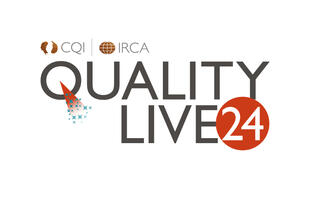
Unlocking the key to successful audits
Progress indicator

A well-planned audit is the key to success, says Quality Assurance Quality Control Engineer K Amarnath.
Failing to plan is equivalent to planning to fail, and this is especially true when it comes to audits.
Audits play a crucial role in various industries, and proper planning is vital for their effectiveness. Many organisations treat audits as a mere formality or a routine procedure that needs to be completed periodically. However, taking this approach, without adding value, may only burden the organisation’s staff.
Such audits can also create fear among company personnel, and they may not contribute to improving the quality perception of the organisation. Therefore, adopting suitable audit schedules and strategies is necessary for conducting successful and value-adding audits, which will be of benefit to the organisation in the long run.
Audit plans are typically scheduled before the start of the fiscal year or at the beginning of a project, and are revised annually. This article will discuss the factors that need to be considered when planning to ensure successful – and value-adding – audits.

Aligning audits with strategic quality objectives
Internal and supplier audits should be planned and aligned with the strategic objectives of the organisation. This will enable you to measure progress and achievements towards those objectives accurately.
This can be ensured through proper planning and the formulation of checkpoints that consider the attributes that contribute directly to the organisation's overall strategic goals.
"Well-crafted audit plans and schedules have the power to transform an audit programme from good to great."
Clearly define audit agenda or goal
Author, attorney, and internal audit advocate Larry Sawyer once said: "For every operation audited, know the mission, the purpose and the reason for being."
Audit agendas may include assessing supplier competency before awarding contracts, minimising potential issues with existing teams, ensuring compliance, confirming processes, and identifying opportunities for improvement.
Prioritising stakeholders while planning
It is crucial to schedule audits based on the importance of auditees in the project. We must prioritise individuals or departments that play pivotal roles in the project’s timeline, budget and overall success, to ensure that the audits are conducted effectively.
Internal customers
Treating internal departments and individuals as customers can provide valuable insights about the internal processes and overall output. Internal audit checkpoints should focus on internal team processes, outcomes, and the factors that contribute to the quality requirements of the products or deliverables.
Customer is king
Customer surveys, feedback, service evaluations and ratings provide us with insights into our commitment, achievements, and shortcomings in fulfilling customer requirements. This helps us improve and replan our strategies and tactics to better achieve our goals.
Frequency of audits
The frequency of audits is generally defined in the organisation’s audit procedures or project quality plan. However, this might need revisiting and updating, based on the actual requirements. For example, an internal quality management system audit can be scheduled bi-annually, whereas a visit to a critical material supplier might be needed every quarter.
In addition, ad hoc audits must be initiated as and when the necessity arises, to find and address the root causes of problems.
Summary
Well-crafted audit plans and schedules have the power to transform an audit programme from good to great. They not only help to achieve organisational objectives, but also to identify gaps, satisfy customers, and benefit the organisation in the long run. So, let’s strive for excellence in our audit plans and schedules, and make a difference to our organisation’s success!
Read more about planning audits
Tony Brachmanski CQP MCQI takes a closer look at how much time auditors should spend planning an audit.




